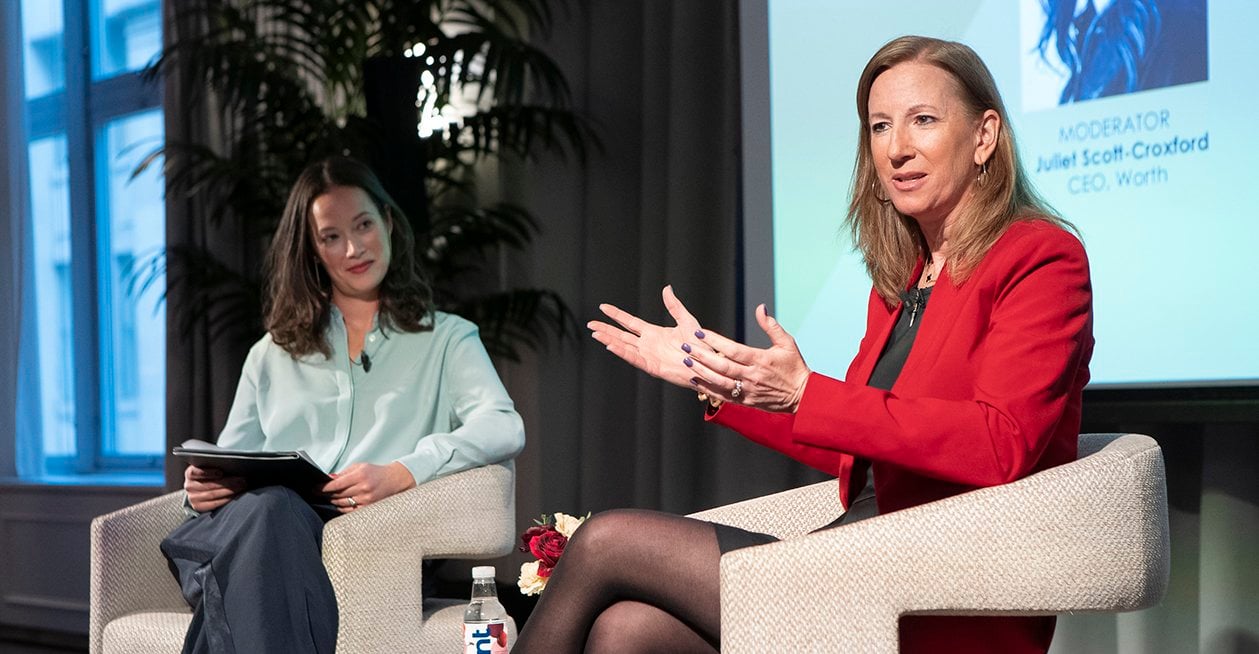As the first female CEO of a major professional services firm, Cathy Engelbert learned a valuable lesson: Never trust a spreadsheet made by men.
“No spreadsheet ever yielded a great result for women,” says Engelbert, who recently became commissioner of the WNBA after a 33-year career at Deloitte. That’s because the assumptions behind the numbers inevitably reflect the perspective of a male-dominated business.
So in her new role running women’s basketball, she’s focused on changing both the numbers and the thinking behind them.
“My vision is to drive a different way of looking at women’s sports, with both a quantitative and a qualitative lens,” Engelbert said during a fireside chat on Thursday at the Women and Worth: Power Forward Summit in New York City. That means questioning the core assumptions behind figures like the value of a jersey patch or an advertisement on a backboard.
More crucially, Engelbert has already changed the way the league calculates a player’s worth. Within seven months of starting her role, she negotiated a historic collective bargaining agreement that increased total player pay by 53% and more than tripled top salaries to over $500,000. It also put in place forward-thinking policies like off-court skills training, a player-to-coach pipeline and an internship program to prepare women for careers beyond basketball.

“We had to be bold,” Engelbert said of the agreement.
One of the most famous champions of the deal was the late Lakers legend Kobe Bryant, who personally reached out to Engelbert to congratulate her once the negotiation was finalized. “We announced our bargaining agreement on January 14,” she recalled. “Who was texting me that day with a big thumbs up? Kobe Bryant.”
“This guy was a true advocate for women’s basketball,” Engelbert said, adding that she’d be honoring Kobe, his late daughter Gianna and the rest of the Bryant family at the WNBA’s upcoming draft ceremony in April.
Engelbert is a fierce advocate, too. At the end of her talk, a member of the audience raised her hand. She was an employee of Deloitte, and she wanted to personally thank Engelbert for pushing through an industry-leading paid family leave policy in 2016.
After a round of applause from the audience to show their appreciation, Engelbert told the story of how the policy had taken shape. A spreadsheet had been prepared to calculate the cost to the company of a generous leave policy—and it was inaccurate. Engelbert tossed it out and went ahead with a 16-week policy that covered a range of parental situations.

The policy ended up costing a third of the initial projections. And it reduced employee turnover while increasing company loyalty and productivity. Moreover, it was the right thing to do.
“None of that was reflected in the spreadsheet,” said Engelbert.






